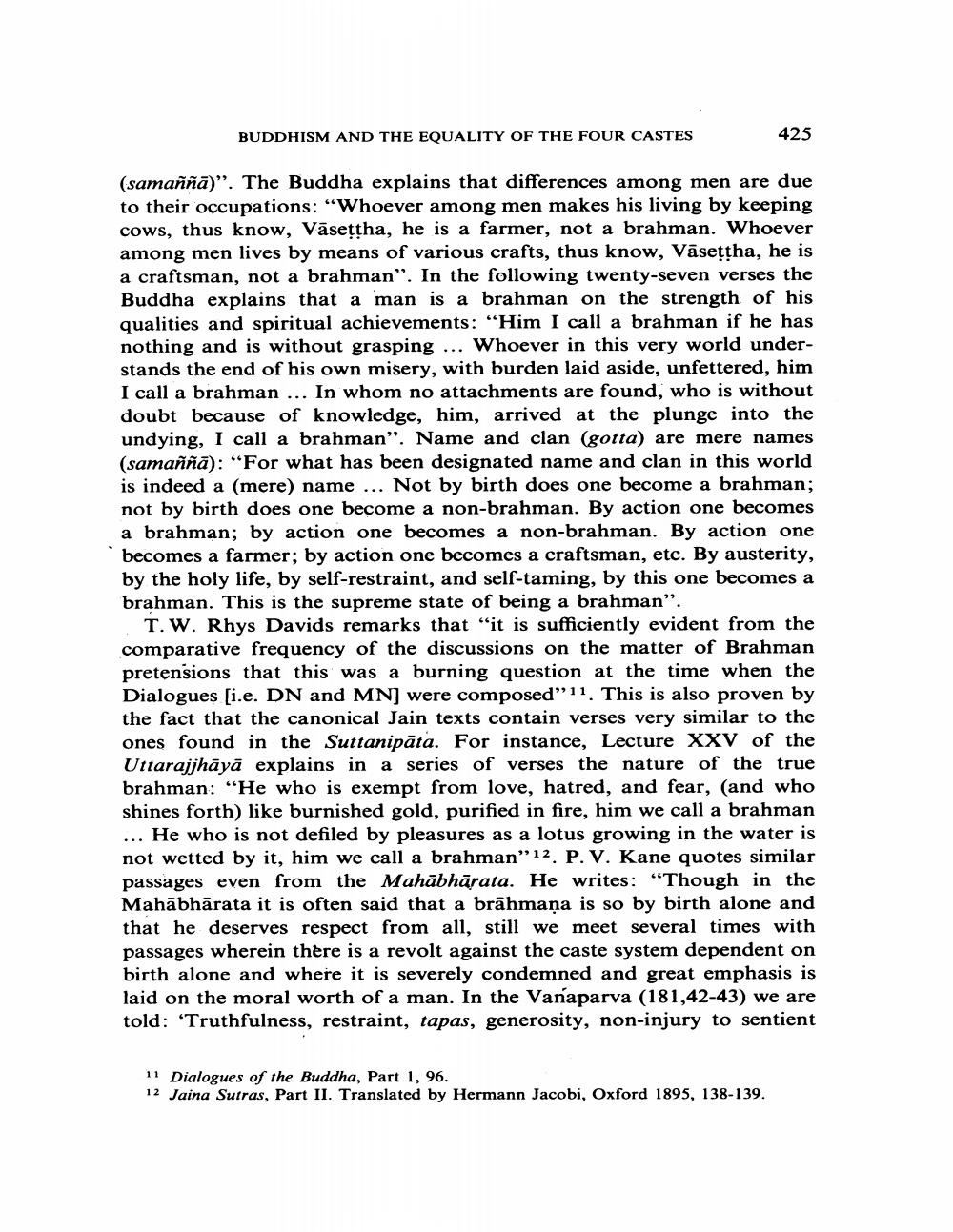Book Title: Buddhism And Equality Of Four Castes Author(s): J W De Jong Publisher: J W De Jong View full book textPage 3
________________ BUDDHISM AND THE EQUALITY OF THE FOUR CASTES 425 (samaññā)". The Buddha explains that differences among men are due to their occupations: "Whoever among men makes his living by keeping cows, thus know, Vaseṭṭha, he is a farmer, not a brahman. Whoever among men lives by means of various crafts, thus know, Väsettha, he is a craftsman, not a brahman". In the following twenty-seven verses the Buddha explains that a man is a brahman on the strength of his qualities and spiritual achievements: "Him I call a brahman if he has nothing and is without grasping ... Whoever in this very world understands the end of his own misery, with burden laid aside, unfettered, him I call a brahman ... In whom no attachments are found, who is without doubt because of knowledge, him, arrived at the plunge into the undying, I call a brahman". Name and clan (gotta) are mere names (samaññā): "For what has been designated name and clan in this world. is indeed a (mere) name ... Not by birth does one become a brahman; not by birth does one become a non-brahman. By action one becomes a brahman; by action one becomes a non-brahman. By action one becomes a farmer; by action one becomes a craftsman, etc. By austerity, by the holy life, by self-restraint, and self-taming, by this one becomes a brahman. This is the supreme state of being a brahman". T. W. Rhys Davids remarks that "it is sufficiently evident from the comparative frequency of the discussions on the matter of Brahman pretensions that this was a burning question at the time when the Dialogues [i.e. DN and MN] were composed"11. This is also proven by the fact that the canonical Jain texts contain verses very similar to the ones found in the Suttanipāta. For instance, Lecture XXV of the Uttarajjhāyā explains in a series of verses the nature of the true brahman: "He who is exempt from love, hatred, and fear, (and who shines forth) like burnished gold, purified in fire, him we call a brahman ... He who is not defiled by pleasures as a lotus growing in the water is not wetted by it, him we call a brahman" 12. P. V. Kane quotes similar passages even from the Mahabharata. He writes: "Though in the Mahābhārata it is often said that a brāhmaṇa is so by birth alone and that he deserves respect from all, still we meet several times with passages wherein there is a revolt against the caste system dependent on birth alone and where it is severely condemned and great emphasis is laid on the moral worth of a man. In the Vanaparva (181,42-43) we are told: 'Truthfulness, restraint, tapas, generosity, non-injury to sentient 11 Dialogues of the Buddha, Part 1, 96. 12 Jaina Sutras, Part II. Translated by Hermann Jacobi, Oxford 1895, 138-139.Page Navigation
1 2 3 4 5 6 7 8 9
